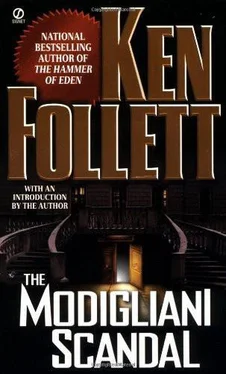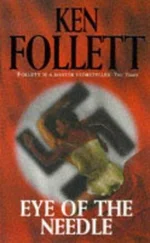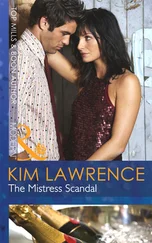Cardwell nodded, and the few strands of white hair on his head waved in the slight breeze caused by the movement. He pulled at the end of his long nose. ″What do you think my collection is worth now?″
″Lord.″ Lampeth frowned, drawing his black brows together at the bridge of his nose. ″It would depend on how it was sold, for one thing. For another, an accurate valuation would be a week′s work for an expert.″
″I′ll settle for an inaccurate one. You know the pictures—you bought most of them yourself for me.″
″Yes.″ Lampeth pictured in his mind the twenty or thirty paintings in the house, and assigned rough values to them. He closed his eyes and added up ̋̋the sums.
″It must be a million pounds,″ he said eventually. Cardwell nodded again. ″That′s the figure I arrived at,″ he said. ″Charlie, I need a million pounds.″
″Good Lord!″ Lampeth sat upright in his chair. ″You can′t think of selling your collection.″
″I′m afraid it has come to that,″ Cardwell said sadly. ″I had hoped to leave it to the nation, but the realities of business life come first. The company is overstretched; there must be a big capital injection within twelve months or it goes to the wall. You know I′ve been selling off bits of the estate for years, to keep me in this stuff.″ He raised his brandy balloon and drank.
″The young blades have caught up with me at last,″ he went on. ″New brooms sweeping through the financial world. Our methods are outdated. I shall get out as soon as the company is strong enough to hand over. Let a young blade take it on.″
The note of weary despair in his friend′s voice angered Lampeth. ″Young blades,″ he said contemptuously. ″Their time of reckoning will come.″
Cardwell laughed lightly. ″Now, now, Charlie. My father was horrified when I announced my intention of going into the City. I remember him telling me: ′But you′re going to inherit the title!′ as if that precluded any notion of my touching real money. And you—what did your father say when you opened an art gallery?″
Lampeth acknowledged the point with a reluctant smile. ″He thought it was a namby-pamby occupation for a soldier′s son.″
″So, you see, the world belongs to the young blades. So, sell my pictures, Charlie.″
″The collection will have to be broken up, to get the best price.″
″You′re the expert. No point in my being sentimental about it.″
″Still, some of it ought to be kept together for an exhibition. Let′s see: a Renoir, two Degas, some Pissarro, three Modiglianis ... I′ll have to think about it. The Cézanne will have to go to auction, of course.″
Cardwell stood up, revealing himself to be very tall, an inch or two over six feet. ″Well, let′s not linger over the corpse. Shall we join the ladies?″
The Belgrave Art Gallery had the air of a rather superior provincial museum. The hush was almost tangible as Lampeth entered, his black toecapped shoes treading silently on the plain, olive-green carpet. At ten o′clock the gallery had only just opened, and there were no customers. Nevertheless, three assistants in black-and-stripes hovered attentively around the reception area.
Lampeth nodded to them and walked through the ground-floor gallery, his expert eye surveying the pictures on the walls as he passed. Someone had hung a modern abstract incongruously next to a primitive, and he made a mental note to get it moved. There were no prices on the works: a deliberate policy. People had the feeling that any mention of cash would be greeted with a disapproving frown from one of the elegantly dressed assistants. In order to maintain their self-esteem, patrons would tell themselves that they, too, were part of this world where money was a mere detail, as insignificant as the date on the check. So they spent more. Charles Lampeth was a businessman first, and an art lover second.
He walked up the broad staircase to the first floor, and caught sight of his reflection in the glass of a frame. His tie-knot was small, his collar crisp, his Savile Row suit a perfect fit. It was a pity he was overweight, but he still cut an attractive figure for his age. He straightened his shoulders reflectively.
He made another mental note: the glass in that frame ought to be nonreflective. There was a pen drawing underneath it—whoever hung it had made a mistake.
He walked to his office, where he hooked his umbrella on the coat-stand. He walked to the window and looked out onto Regent Street while he lit his first cigar of the day. He watched the traffic, making a list in his mind of the things he would have to attend to between now and the first gin and tonic at five o′clock.
He turned around as his junior partner, Stephen Willow, walked in. ″Morning, Willow,″ he said, and sat down at his desk.
Willow said: ″Morning, Lampeth.″ They stuck to the habit of surnames, despite the six or seven years they had been together. Lampeth had brought Willow in to extend the Belgrave′s range: Willow had built up a small gallery of his own by nurturing relationships with half-a-dozen young artists who had turned out to be winners. Lampeth had seen the Belgrave lagging slightly behind the market at the time, and Willow had offered a quick way to catch up with the contemporary scene. The partnership worked well: although there was a good ten or fifteen years between the two men, Willow had the same basic qualities of artistic taste and business sense as Lampeth.
The younger man laid a folder on the table and refused a cigar. ″We must talk about Peter Usher,″ he said.
″Ah, yes. There′s something wrong there, and I don′t know what it is.″
″We took him over when the Sixty-Nine Gallery went broke,″ Willow began. ″He had done well there for a year—one canvas went for a thousand. Most of them were selling for upwards of five hundred. Since he came to us, he′s only sold a couple.″
″How are we pricing?″
″The same range as the Sixty-Nine.ʺ
″They may have been doing naughty things, mind,″ said Lampeth.
″I think they were. A suspicious number of highly priced pictures reappeared shortly after they had been sold.″
Lampeth nodded. It was the art world′s worst-kept secret that dealers sometimes bought their own pictures in order to stimulate demand for a young artist.
Lampeth said: ″And then again, you know, we′re not the right gallery for Usher.″ He saw his partner′s raised eyebrows and added: ″No criticism intended, Willow—at the time he appeared to be a scoop. But he is very avant-garde, and it probably did him a little damage to become associated with such a respectable gallery as ours. However, that′s all in the past. I still think he′s a remarkably good young painter, and we owe him our best efforts.″
Willow changed his mind about the cigar, and took one from the box in Lampeth′s inlaid desk. ″Yes, that was my thinking. I′ve sounded him out about a show: he says he has enough new work to justify it.″
″Good. The New Room, perhaps?″ The gallery was too big for it all to be devoted to the work of a single living artist, so one-man exhibitions were held in smaller galleries or in part of the Regent Street premises.
″Ideal.″
Lampeth mused: ″I still wonder whether we wouldn′t be doing him a favor by letting him go elsewhere.″
″Perhaps, but the outside world wouldn′t see it like that.″
″You′re quite right.″
″Shall I tell him it′s on, then?″
″No, not yet. There may be something bigger in the pipeline. Lord Cardwell gave me dinner last night. He wants to sell his collection.″
″Ye Gods—the poor chap. That′s a tall order for us.″
″Yes, and we shall have to do it carefully. I′m still thinking about it. Leave that slot open for a while.″
Читать дальше












